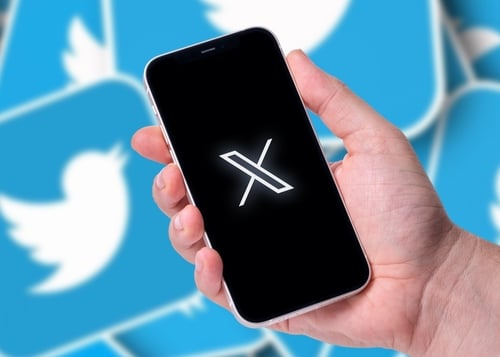The business environment is undergoing its most prolific period due to the digitised market and easy form of communication with the target audience. If you look at it, the usage of social media has increased public involvement establishing trusting B2C relationships and elevating the business profitability.
According to statistics, 76% of social media users have made purchases after seeing an ad on social media, which made over 50% of the business revenue.
Facebook is a globally recognised marketplace, and platform for reaching the target audience. Yet, due to data breaches and rather weird algorithms, the trust level has decreased significantly, which also deteriorates the business performance.
Twitter, however, has been able to maintain a relatively stable level of trust among users, despite all the updates of policies and name changes. Therefore, let’s learn how to build brand visibility and trust with users on Twitter.
How to build a business brand on Twitter
Twitter-based business is about strategy and the gradual development of trust.
1. Elaborate on tweets
Tweets have the biggest value in the Twitter space; they are short, meaningful, informative, and not overwhelming. Just what modern society looks for.
The major recommendations for tweets:
– The tweets contain 280 characters, thus the idea should be concise and clear to be reposted and liked.
– The usage of hashtags improves the visibility, yet, be very specific and concise with them – don’t use more than two or three per tweet.
– Consider catchy and high-quality images, as they boost users’ involvement.
– Watch your grammar and punctuation, and use Tweet Deleter if some of them, especially old Twitter posts, don’t fit the page’s image or don’t receive the expected response from the followers.
Tweets create your business identity, thus, make sure they follow the brand guidelines.
2. Build a loyal follower base
Loyal followers will form a powerful base of clientele, spreading the word about your business. The expansion of followers takes time, patience, and smart solutions:
– Be consistent with the content. Make sure it brings value to the users. Nobody likes to waste time on useless stuff.
– Be involved. Don’t let the followers be lonely in comments, but show your presence by
responding to their questions or remarks.
– Collaborate with influencers. Influencers are a real force behind brand recognition. Ensure
mutually beneficial collaboration, which will attract followers from each side.
– Be responsive. The ability of businesses to respond promptly to requests and address the
followers’ issues helps to feel valued and appreciated.
Followers are the core of any business, do everything to show how you appreciate them.
3. Go live
Live tweeting spurs interest in your business and activities, thus, attracting a wider audience. Let users see what you do, and share the updates and announcements. Live tweeting is a proven way to keep people online, and make them actively involved with your brand.
4. Organise contests
The contest is an efficient booster of customer engagement. Ask your audience for simple activities like commenting, taking photos, retweeting, friend tagging, and in return, offer the prize.
The comments help to boost the page while also exposing it to other potential followers.
5. Be twitter-wise
The trends are always changing; to be accepted and understood by the public, follow the changes and trends to maintain stable interest from your target audience.
Why should businesses use twitter?
1. User activity
Since Twitter isn’t public anymore, it doesn’t share all the data regarding its functioning; yet, according to 2022 estimates the number of daily monetised active users is around 245 million worldwide with a tendency for growth. Such an activity creates a wide audience right at your fingertips. The majority of active users are between 18 to 35 years range, which is also important to consider when communicating with the audience.
2. Direct communication
One of the best features of social media for business is the ability to communicate directly with potential users. The interaction should be informationally enriching, and valuable for users.
3. Advertisement
Twitter gives you a chance to advertise your goods and services to a target audience and thus increase significantly customer engagement and outreach. Yet, there should be limits. Once the advertisement becomes annoying, there are more chances to scare off the potential clientele and lose credibility among the users.
4. Brand awareness
Twitter allows businesses to develop their brand recognition by posting relevant and engaging content regarding the industry.
5. Proactive position
Twitter, with direct customer outreach, allows businesses to address the issues instantly, once the customers experience them. Such a level of responsiveness will certainly appeal to the users, building a trustful C2B attitude.
Twitter is like an out-of-the-box marketing tool for modern businesses. It brings together brands and their clients, allowing for better interaction. Twitter is not about a direct advertisement but about quality communication, and trust-establishing relationships that, after all, will work better than any ad.
Editorial credit: Yalcin Sonat



